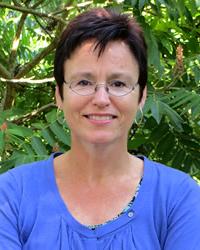
Biography
My research and teaching fields of interest have kept moving and shifting. Most recently, they have focused on 20th/21st-century literature, novel studies, and narrative theory. I am currently working on a monograph that focuses on vindicating narrative as a reliable mode of knowledge. Working at the intersection of cognitive science, hermeneutic phenomenology, novel studies and narrative theory, the book makes the case that to reaffirm narrative as reliable knowledge it is necessary to refocus what counts as knowledge, shifting emphasis from theoretical knowledge to practical reasoning. The argument proceeds through several case studies of modern and contemporary fiction. An article version of one chapter (“Tom McCarthy’s Neo-Neuromodernism: Reconfiguring Proustian Memory in Remainder”) has appeared in Contemporary Literature 66.2 (2026).
Prior to that, my focus has been on the new realist movement in critical theory, apocalyptic fiction, the Baroque/Neobaroque/New World Baroque, Latino/a/x literature and culture, and hemispheric American and borderlands literature. My most recent book, New Ecological Realisms: Post-Apocalyptic Fiction and Contemporary Theory (Edinburgh UP, 2021) deals with revisioning realism in the eras of post-critique, of climate change and the end of postmodernism. Showcasing a new context-based concept of the real, it pairs critical theory with literature, proposing that post-apocalyptic fiction is an important source of new realist ontologies.
Before that, my research has explored the transhistorical and transnational continuities of the Baroque. Neobaroque in the Americas: Alternative Modernities in Literature, Visual Art, and Film (Virginia UP, 2012) reflects on the rich, non-linear transhistorical and transcultural genealogy of baroque expression. Neobaroque in the Americas envisions the Baroque as an anti-proprietary expression that brings together seemingly disparate writers and artists—U.S. modernists, contemporary anti-dictatorship literature and film from Chile and Argentina, and U.S. Latino/a visual culture and art.
I co-edited Baroque New Worlds: Representation, Transculturation, Counterconquest (with Lois Parkinson Zamora, Duke UP 2010), which traces the changing nature of baroque representation in Europe and the Americas across four centuries, from its 17th-century origins as a Counter-Reformation and monarchical aesthetic and ideology to its contemporary function as a postcolonial ideology aimed at disrupting entrenched power structures and perceptual categories.
My journal articles can be found in Environmental Philosophy Online, Modernism/Modernity, Contemporary Literature, PMLA, Comparative Literature, and a special issue on globalism in Modern Language Quarterly.
Research
Selected Research
- New Ecological Realisms: Post-Apocalyptic Fiction and Contemporary Theory (Edinburgh UP, 2021)
- Monika Kaup, New Ecological Realisms: Post-Apocalyptic Fiction and Contemporary Theory (forthcoming, Edinburgh UP, 2021)
- Monika Kaup. Neobaroque in the Americas: Alternative Modernities in Literature, Visual Art, and Film. U of Virginia P. 2012.
- Monika Kaup. Baroque New Worlds: Representation, Transculturation, Counterconquest. Co-edited with Lois Parkinson Zamora. Duke UP. 2010.
- Monika Kaup. Mixing Race, Mixing Culture: Inter-American Literary Dialogues. Co-editor with Debra Rosenthal. U of Texas P. 2002.
- Monika Kaup. Rewriting North American Borders in Chicano and Chicana Narrative. Peter Lang. 2001.
- Monika Kaup. Mad Intertextuality: Madness in Twentieth-Century Women’s Writing. Wissenschaftlicher Verlag Trier. 1993.
Research Advised
- Pruett, Jacob. Uncovering the Face of Nature: Autopoietic Enactivism and a Systems View of Mind, Life, and Language. 2025. University of Washington, PhD dissertation.
- Sobers, Janine H. Enchanted Modernisms: Global Literary Afterlives of the Spirit, 1922–1949. 2023. University of Washington, PhD dissertation.
- Abella, Dan Donovan. Foreign Forms: Modernism and Anglophone Philippine Literature. 2022. University of Washington, PhD dissertation.
- Simons, Barbara. Tracing Hybrid Collectives of Illness, War, and Medicine in Twentieth- and Twenty-First Century Narratives of Illness. 2016. University of Washington, PhD dissertation.
- Escalera, Gibran. 1848 Beyond the 19th Century: Border Fictions, Peripheral Modernities. 2015. University of Washington, PhD dissertation.
- Samuel Pizelo, "Biopower and Heterology: An Examination of Protest and Resistance through the Photographs of Abu Ghraib," 2013.
- Nicole Perrine Guenther. Reading George Washington Gomez as a White Reader: Whiteness and Identification. Honors Thesis, University of Washington. 2012.
- Amanda Rose Whitbeck. Identity and Agency in The Fourth Century. Honors Thesis, University of Washington. 2012.
- Cherry Cui Hua Liu. The Internalization of Social Values in the Modern World: Tess of the D'Urbervilles and George Washington Gómez. Honors Thesis, University of Washington. 2012.
- Stephanie Rose Whitney. Honors Thesis, University of Washington. 2012.
- Alaska Lea McGann. Gaps in Transnational Translation: (Mis)Understanding Relationships in Martinez's Mother Tongue. Honors Thesis, University of Washington. 2012.
- Shelby Ann Parkin. Honors Thesis, University of Washington. 2012.
- Greta Christine Pittenger. Honors Thesis, University of Washington. 2012.
- David Christian Bahr. The Transnational Bildungsroman: A Historical Summary and Application to Mexicotexan Borderland and Migrant Literature of the 20th Century. Honors Thesis, University of Washington. 2012.
- Danielle Erin Skredsvig. Honors Thesis, University of Washington. 2012.
- Leah Audrey Roz Caglio. Honors Thesis, University of Washington. 2012.
- Ajjana Thairungroj. An Exploration of Metaphysical Loneliness and Relationships in Sputnik Sweetheart and Kitchen. Honors Thesis, University of Washington. 2012.
- Alexander Catchings. Look Who's Laughing: Self-Making, Humor, and Subjectivity in the Neo-Slave Narrative. Honors Thesis, University of Washington. 2012.
- Esther-Maria Tkacz. Under a Spell: The fantastic tale of Orlando, its chronotope and its relation to A Room of One's Own. Honors Thesis, University of Washington. 2012.